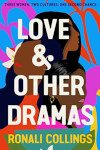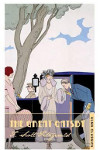Orlando Ortega-Medina – The Death Of Baseball
Posted 20th May 2019
Category: Reviews Genres: 2010s, Angst, LGBT, Psychological, Thriller
Comments Off on Orlando Ortega-Medina – The Death Of Baseball

‘Imperfection is beauty, madness is genius and it’s better to be absolutely ridiculous than absolutely boring’ — Marilyn Monroe.
Publisher: Cloud Lodge Books
Pages: 452
Type: Fiction
Age: Adult
ISBN: 978-1-999-58735-2
First Published: 21st May 2019 (ebook); 21st June 2019
Date Reviewed: 16th May 2019
Rating: 4.5/5
Japanese American Clyde lives with his caring mother and highly abuse father; when his father causes him to kill his cat, the effect of continued causes Clyde to change. At the same time, Clyde comes to discover the films of Marilyn Monroe, who died the night he was born – this, he believes, is no coincidence. Not far away, Jewish Raphael fights with himself and over the rules of others; he’s a passionate believer in his faith but a problem for his family. He’s been told he’s special, chosen.
The Death Of Baseball is an epic novel about the psyches of two young men in 1970s America, one who believes he is the reincarnation of Marilyn Monroe, and the other, a kleptomaniac with what appears to be an anti-social disorder, both accidentally and on purpose destroying what he holds dear. The story chronicles their early years and eventual meeting, ending in a fast-paced and fitting conclusion.
Ortega-Medina has a particular handle on storytelling that’s a dream to experience; as we saw in his debut, Jerusalem Ablaze – a collection of stunning short stories in which on one the defining stylistic features was that short stories need not end with a moral – his take on writing draws you in and keeps you reading. And, whilst you of course want to be tempted by the story, you don’t actually need to actively like it to enjoy the book. In short, this author could write a story about paint drying and it’d be one of the most engrossing and compelling things you’d ever read.
So this has carried over into his first novel. The story is well executed, and suitably stretched out over a number of years and locations that aid your continued interest when the characters’ ethics go downhill (more on them in a bit). Provided the genre of psychological thriller, the things to get you thinking are varied and clever. The first of these you encounter is Clyde’s reaction to the death of his cat, an accident caused by his terror of his father’s violence; Clyde’s mother suggests a method to put the cat out of his mind and the written ‘version’ of this that Ortega-Medina adopts brings to the fore the devastation of abuse on a child and shows the difficulties present in trying to deal with such a thing at such a young age. If you love animals and/or have recently experienced the death of a pet you may find it hard to read, but the perseverance pays off; read it slowly, you get through it, and the pain you may feel only goes to display further what the author is communicating.
Ortega-Medina includes a lot of abuse – this book shows how abuse can lead to abuse, or to mental issues that often get seen solely as part of the individual rather than also in the context of the cycle. The writer looks at both child and adult; focusing on the effects on the child he nevertheless spends a moment here and there on the abuser, not to explain away problems but to show the beginnings in terms of facts. It affects Clyde’s maturity and sense of person but the writer is careful not to explain away the thriller element of the story, suggesting also places that aren’t impacted by childhood. Raphael’s treatment is a lot more subtle, his own awful deeds blurring the neglect from his family.
The characters are incredibly well written. Clyde is somewhere just left of the middle in terms of ‘goodness’, a person who is either misguided (and delusional) or real (Marilyn gets a word in at the start). Raphael is towards the anti-hero end of the scale, a troublemaker of a particular persuasion who often says he is sorry but isn’t, a person fairly akin to Alex of A Clockwork Orange, who you go back and forth between hoping it’s just a phenomenally bad case of understanding, and a true, intentional, lack of care. A lot of the book deals with the question of redemption, whether Raphael will ask for it and act appropriately, and how many times he might be afforded a chance.
This book has a strong LGBT thread running through it – the characters are gay. The book includes a lot about religion in it – Judaism – however sexuality isn’t discussed in this light; they are two separate themes of equal importance. It’s worth noting, particularly given the label, that the acronym does not extend to transgender issues – Clyde is not trans; his thought as to an operation, which is in place for a short while, is due to his belief that he is Monroe – he wants to look like her rather than become a woman for the gender itself. (I think this important to note in case you’re wanting to read the book due to what may appear to be the inclusion of trans issues – this book isn’t it.)
In looking at Judaism from the perspective of a person who deems themselves devout we read about the faith, and in travelling to Israel learn a bit about the situation there (the perspective is mostly that of Raphael’s family who are heavily involved in the military). Mostly the stay in Israel is about the place itself, the way it is regarded by various peoples (Raphael meets a born-again Christian who seems completely indifferent to the troubles), and the journey to different areas within the country draws out the epic feel of the book.
The ending, whilst quick, is nevertheless a little drawn-out – partly because by this time you have completely given up hope over certain things. The conclusion isn’t rewarding in the ‘usual’ way, perhaps in deference to the fact that by that point, it would be difficult to make it such. The Death Of Baseball, then, is a book in which the reading experience is everything – it’s hard to relate to the characters, the story itself is often difficult. Whilst the ending is a metaphorical race to the finish line, an exhilarating ride to a shocking conclusion, it is the act of reading the book itself that you will miss, Ortega-Medina’s style of storytelling irresistible, compelling. The book is akin to a road trip, where the time spent travelling, the progression of the trip, is what you take away with you, and the easiness of the reading alongside a complexity that is hard to define means you’ll miss this book for quite a while after finishing it.
(On the subject of baseball, if you don’t know about Monroe’s marriages, have a quick read before you start this book. It’s not necessary to know, per se, but it’ll add just that bit more to your reading.)
I received this book for review.
Related Books
No Comments
Comments closed























